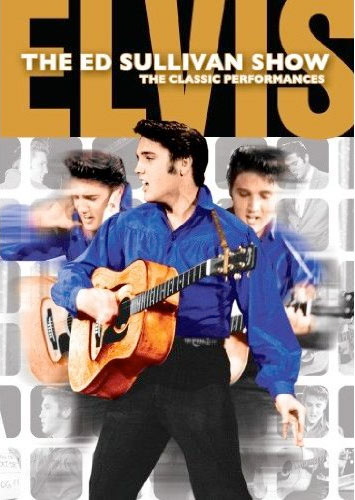Welcome back to Graceland Ontario, ladies and gentlemen! Today we're going to be talking about exploiting the similarities between you and others.
So, it’s that’s
time of year again − when the radio stations that usually play soft rock and
pop switch to the classics… carols.
There’s a long
tradition of carols being played in our society around the Christmas season. From
the wassailers, originally peasants who’d gather around the door of the lord of
the manor and sing until someone came out and gave them money or food. Later
these troupes came from churches, or groups of friends out for a laugh.
Regardless, it was a fun seasonal activity and a way of spreading cheer (one
that’s sadly died in many cases today).
The thing about
Christmas carols is there’re only so many − annoying, isn’t it? So, when the
traditional ones get old, others contribute to the stock − Handel wrote “Joy to
the World”, Mendelssohn “Hark the Herald Angels Sing”, Berlin “White Christmas”, Leiber and Stoller “Santa
Claus is Back in Town” and on to the present.
But, unlike
most modern songs in our society, these songs were not relegated to just
symphonies or the original artist. They became standards sung by everyone with
a Christmas song in mind − the wassailers, now the family singing ‘round the
Christmas table; The radio stations, the schools, the churches − everyone
pushed their popularity.
So, unless
you’ve had your head in a snail’s shell the better part of your life, you’ve
heard all the big Christmas carols. You could probably name them if you had the
time and when they play on the radio, you could probably mouth at least a few
of the lyrics.
They became
common knowledge, if not public domain so often paid for that people forgot
there was a copyright on them. And because everyone knew them, you could go out
to a carol sing with complete strangers. Doesn’t matter what they listen to the
rest of the year − at Christmas, you all sing the same songs. They became a way
of uniting, a commonality among much of the Western world.
Then Elvis
Presley came along. Given that he was the latest hot thing and everyone loved
Christmas to start with, his manager, Colonel Tom Parker, he and the RCA big
guys got together to make an album for the season. It came out in 1957 and was
the last piece of work Elvis did with his traditional band, Scotty Moore on
guitar, D. J. Fontana on drums and Bill Black on bass. They had a pay
disagreement and parted ways with Elvis after the album’s completion.
The album was a
huge success − sure, Elvis hadn’t turned into Bing Crosby over night, but he
did rack up some more sales − the album is certified 3X platinum. Hardly
surprising − it had “Blue Christmas” on it…
Then, in
between a bunch of movies and gospel songs, Elvis finally did another album of
Christmas stuff in 1971, Elvis Sings the
Wonderful World of Christmas. RCA thought the original stuff was getting a
little old (after fourteen years, you can’t blame them). So, among the new
tracks were rearrangements of “The First Noel” and “Oh Come all Ye Faithful”.
Good stuff, and an end of it.
But was it? The
singles off those albums have somehow worked their way up with the classics versions
sung by Nat King Cole, Sinatra and, of course, Crosby. So much so that when I was at my
community tree lighting, what did I hear but Elvis singing “Winter Wonderland”.
The thing is,
people don’t listen to it necessarily because it’s Elvis. I mean, sure he has a
ton of fans, but some people don’t like him. And however weak and flawed their
arguments are, it’s hard to tell someone they like the wrong type of music.
But when Elvis
(or anyone, for that matter) sings Christmas stuff, they lighten up and listen,
because they’re listening to Christmas music. It’s something they know, a
commonality, and not some ol’ rock ‘n’ roll singer they wouldn’t dare listen to
because he’s not hip enough for their school friends.
So, here’s how this benefits you:
Commonalities
are great ways to hook up with others. At Christmas, it’s a way of sharing the
spirit and having a laugh. It’s also a way to succeed with friends and in
business.
Going back to
something I said in an Independence Day post: when you’re on the band wagon for
Independence Day and are supporting the partying (which is probably going to
happen anyways), people will go to you because you’re “the fun guy” who
“understands”. In other words, you exploited a commonality you have with the
customer (Independence Day), they feel a likeness to you and give you business
as a result.
Another example
− back when I was trying to get better with woman (and yes, ladies and
gentlemen, it happened) I read something David Deangelo, the dating coach,
said. In essence, learn about popular culture. What’s Lady Gaga doing, did Will
Smith’s marriage break up, what’s the latest movie?
Crap? You bet.
Until it gets you into a conversation with a girl − it happened to me yesterday
when I was talking to this hot bird about the latest Batman film, “The Dark Knight
Rises”. Wait, you haven’t seen that? Better get on it.
The more commonalities
you can find with others, like the one’s present in Elvis’s Christmas music,
the more people are going to be able to see the similarities between you and
them rather than the differences. And people think a person similar to them
will act like them, and therefore they feel they can trust them. And you know what happens to
people others trust? They make friends, money and are successful. Now, do
you see why it’s worth living through two and a half hours of Batman?
Elvis’s Lessons:
Christmas
carols are more than just music − they’re a way of bonding together at a
magical time of year. Elvis used carols to unite people: his band, his fans,
even lovers of Christmas music who wouldn’t usually listen to him. Using common
songs and knowledge, like carols, to your advantage can bring you
different crowds you wouldn’t usually have access to. And, new crowds mean new
friends, new connections, new business partners, new customers, new lovers.
Finding common ground through things like Christmas carols can bring your
social and business lives to the next level.
Other Graceland Ontario posts you might be interested in:

































